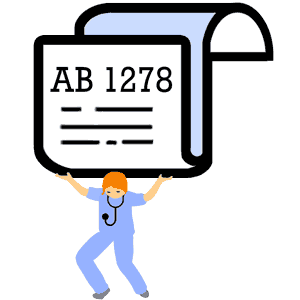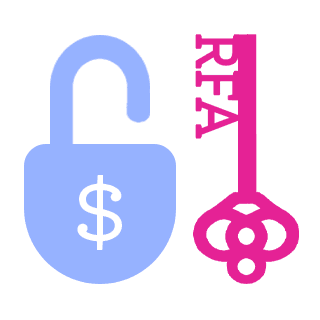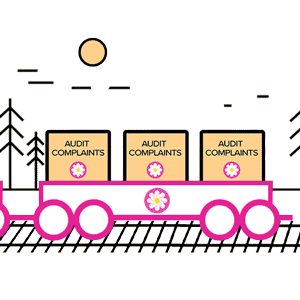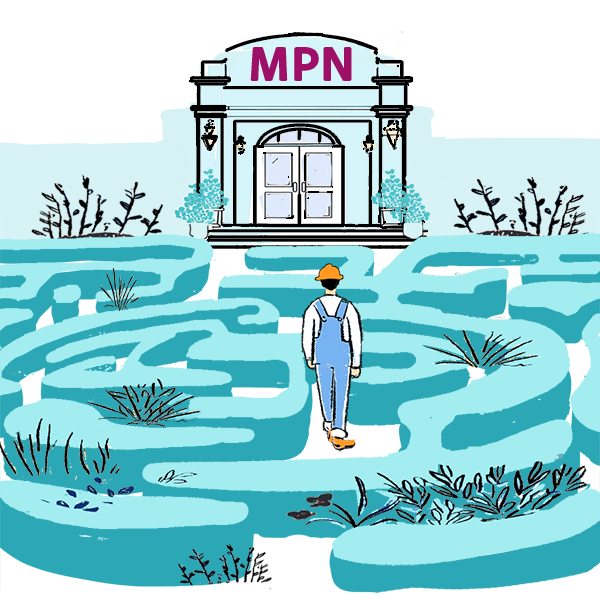CA: AB-1278 Gives Networks Control of Workers' Comp

California's Medical Provider Network (MPN) system is an absolute debacle, leaving workers' comp doctors and injured workers in perpetual uncertainty. The system fails to allow physicians and service providers to verify if an MPN applies to an injured worker's employer.
This appalling lack of transparency hinders (or outright prevents) injured workers from receiving authorized care since doctors must struggle to determine if an MPN applies to the worker.
Enter California Assembly Bill 1278, which instead of offering transparency, throws the entire MPN system to the mercy of network entities. Should AB 1278 pass, network entities will "coordinate" the following:
- Medical care, including treatment by physicians
- Surgical care [we presume the ASC facilities]
- Hospital treatment
- Ancillary services
AB 1278 will eradicate individual physicians' names from MPNs, replacing them with network entities responsible for "coordinating" (i.e., scheduling) care. This bill:
- Deprives injured workers of their right to choose their physician or facility
- Enables network entities to profit off providers in exchange for merely scheduling appointments within MPNs
Unfortunately, by allowing the MPN system to remain opaque, AB 1278 permits network entities to act as unchallenged gatekeepers, wielding potentially absolute power over care coordination.
Tomorrow April 26, at 9 AM PT, the California Assembly's Committee on Insurance will conduct a hearing on AB 1278 in State Capitol Room 437. The committee website indicates that only in-person testimony is accepted, seemingly disregarding any opposition from physicians unable to attend.
Who champions this bill and its amendments to California MPN law? Presumably, lobbyists for the network entities that will profit from "coordinating" care at the provider’s expense.
AB 1278 is a sham solution, failing to address MPN issues that could be resolved with a simple MPN database. Instead, it hands network entities the reins to injured workers' care and the potential to exploit physicians and facilities. With no way to verify MPN applicability, neither doctors nor applicant attorneys can challenge network claims regarding treatment options for injured workers.
The bill's sole objective is empowering and enriching third-party networks to schedule appointments for injured workers. This forces providers to relinquish revenue for the dubious "privilege" of having the network "coordinate" (read: schedule) authorized care.
Assembly Bill 1278: How to Rig Regulations for Network Benefit
Below is one of AB 1278's proposed amendments to the current MPN law. This section aims to:
- Allow MPNs to list entity names rather than listing physician names, and
- Permit entities to coordinate care for physician treatment, surgical, hospital, and ancillary services
The amendment replaces the existing requirement to list individual physician names in MPNs. Instead, an MPN would be permitted to list an entity that coordinates care on behalf of the MPN.
Network entities profit from scheduling appointments by retaining a portion of the reimbursement paid by the claims administrator, leaving doctors with the remaining amount.
If AB 1278 passes, these entities will force independent doctors to bid against each other to see who will accept the lowest reimbursement rates. The entities, not injured workers, will select the treating physicians. These entities will also render all California Fee Schedules irrelevant, as doctors, ASCs, and hospitals will receive contractual network rates.
A simple solution, like an MPN database, would address questions about MPN applicability or provider eligibility to treat. However, transparency would hinder network entities from profiting. As long as determining whether an MPN applies to a particular employer remains impossible, network entities are in control.
When networks coordinate and manage care, doctors are more likely to be pressured into sacrificing revenue to participate in these networks. The MPN model relies on keeping information from doctors and injured workers — a situation AB 1278 perpetuates and expands.
All California medical providers should thoroughly read the proposed changes, highlighted in red and blue below.
MPN Notifications: A Sham Solution
In a lazy attempt to present the facade of an actual solution to the problem of determining MPN applicability, AB 1278 also amends the Labor Code as shown below:
This amendment dictates that to determine if an employer maintains an MPN, a doctor must follow these steps:
- Request permission from the injured worker to obtain an electronic copy of any MPN notification given to them.
- If the injured worker grants permission, the doctor must request an electronic copy of the MPN notification from _______ (fill in the blank). AB 1278 does not specify from whom the doctor should request the copy of the MPN notification.
Instead of utilizing existing technology to enable doctors to ascertain treatment eligibility, AB 1278 requires doctors to obtain permission from the injured worker for the doctor to request MPN information from an unspecified entity.
This amendment emphasizes the need for more transparency in MPNs while ensuring that entities maintain control over directing injured worker care, as doctors (or applicant attorneys) cannot easily challenge whether an MPN applies to an injured worker.
“Business Entities” Empowered
AB 1278 further expands that any entity in any state can coordinate the care of California’s injured workers.
The doors are wide open for business entities nationwide to dictate which physicians may treat injured workers and at what reimbursement rates.
AB 1278 is not a fix. It is an instruction manual for networks on how to rig regulations to bypass state fee schedules and create a network-friendly environment in 3 steps:
- Ensure the MPN system is so impenetrable that no one can determine which MPN applies.
- Allow MPNs to list network entities instead of individual providers.
- Assert that doctors will not be eligible to treat injured workers unless they join the network — at contractually discounted reimbursement rates.
Once every independent physician is squeezed out of California workers’ comp, this disastrous bill's true costs will be clearer. Until then, providers should fight this.
Protect your practice. Harness the power of daisyBill software, data, and expertise for faster, better workers’ comp billing. Reach out to learn how we can help.
CONTACT US
DaisyBill provides content as an insightful service to its readers and clients. It does not offer legal advice and cannot guarantee the accuracy or suitability of its content for a particular purpose.



.png)

.gif)